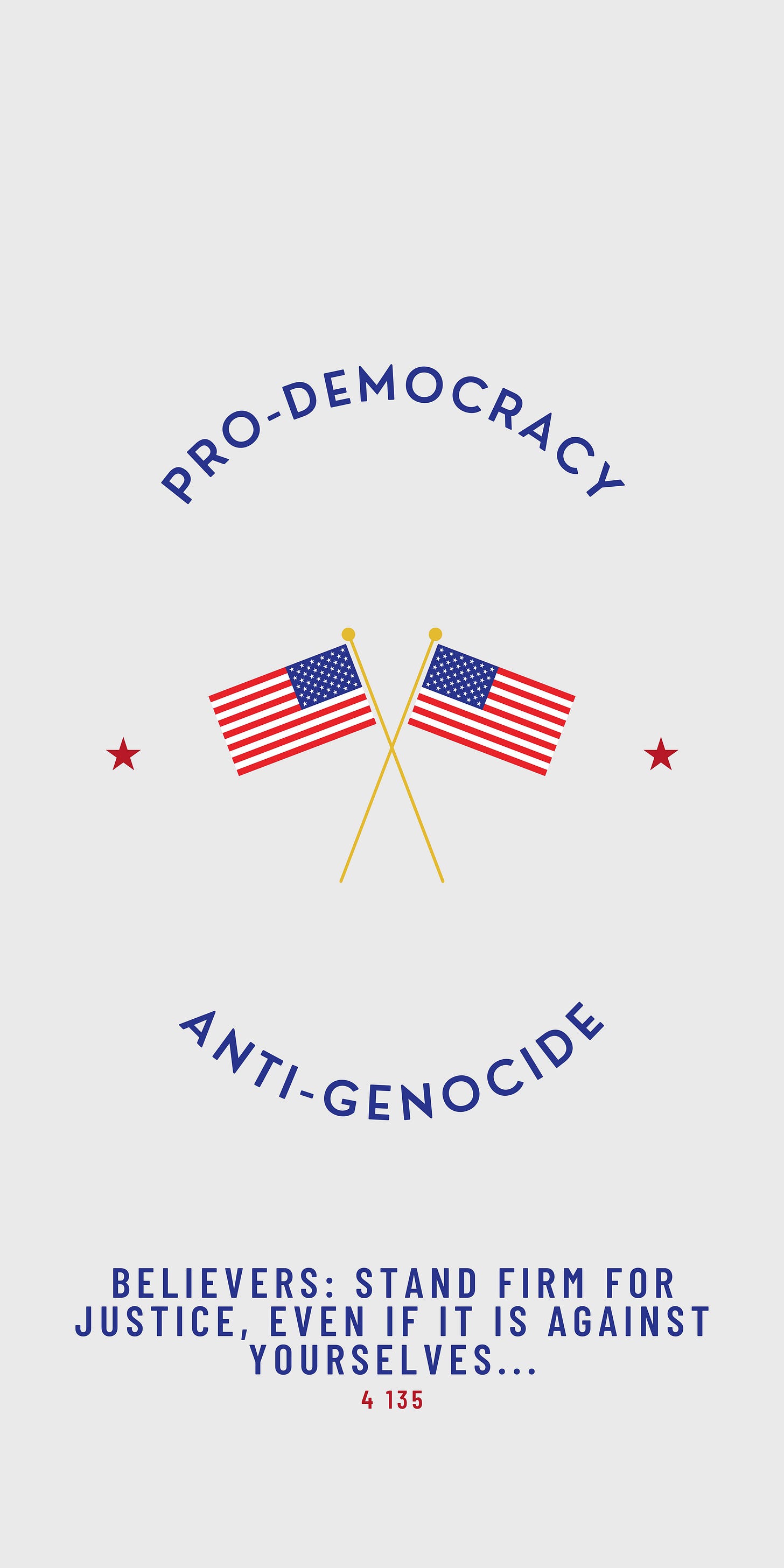Last Friday, I shared a written debate Shadi Hamid and I had at Wisdom of Crowds, a precious opportunity for the two of us to unpack our interpretation of the last year at length, exploring the value of the Democratic Party as a vehicle for Muslims and the best way to combat the policies we’re so rightly offended by.
Yesterday, Wisdom of Crowds dropped a podcast with the two of us carrying this debate into broader, bigger territory. Propelled by host Damir Marusic, Shadi and I went back-and-forth on the dangers of Trump and Harris, the precarious situation we face politically, and our moral responsibility in this moment as Americans and as Muslims.
I’d love for you to give it a listen—
What you’ll hear is a deep, searching, raw conversation. This is one reason why we should develop our own media platforms even as we engage with mainstream platforms: Because sometimes we need insider baseball. And sometimes we need to be part of the national conversations that inevitably implicate and inspire us.
Let me know what you think!
Two big thoughts before I go.
First, the points I made were the product of months of conversation. My wife, our kids, family and friends, community potlucks, dawats, post-jumu’ah chats on the way to and from our cars, meeting for coffee as we sit down and say, ‘what in the heck are we doing right now?’—exchanges at the baseline at basketball games, all of us trying to make our way through this moment.
But a special shout-out to two dozen wonderful high schoolers. Last spring, I assigned them positions: Make the American Muslim case for Biden. For Trump. For a third-party. For not voting. I didn’t ask them to make the case they felt most compelling, but to make the case they were assigned as best they could. We become better thinkers when we engage the strongest arguments against us.
And they were game! They had a week to research positions in teams. Then they threw down over two hours, going all-in, and when it was completed, exhaustively spoken and argued over, I asked them: How do you really feel? And the most meaningful takeaway for me was there.
They didn’t agree.
They are two dozen kids from very similar backgrounds, connected to each other for years, if not their whole lives, sometimes related to each other and they couldn’t come to an agreement. That was my main lesson that day: Our faith calls us to account. We wrestle with the same texts. We live the same truths. We aspire to the same outcomes. But we will always have different ways to get there and that’s how God intended it to be.
I’m not comfortable with bloc votes for that reason. Still further, if we genuinely and clearly knew what to do right now, that would be one thing, but none of us does. That’s why these conversations are so important. Yesterday in halaqa we talked about how the earliest Muslims passionately disagreed on some important topics, not because they were bad people, but because they loved their faith.
They also believed they were obligated to do the right thing, come what way, that they had to answer to God for their conscience. Last week, we talked about the formation of madhahib, about the mihna, about what’s good and bad about a decentralized religion—I called it “controlled pluralism,” it’s never my-way-or-the-highway, but neither is it anything goes, sometimes ambiguous, sometimes clear.
But always trying to balance common principles and human difference.
That brings me to the second point.
Many people in our community and even in our families are voting differently. A warm reminder that American Muslims, never mind Muslims more broadly, are never been and have never been a monolith. That’s not because we’re bad Muslims—in fact, it’s because we care about and honor our faith. A faith that didn’t inspire us to debate, to disagreement, to contentious responses, wouldn’t be a faith that means much to us, which is incidentally why political religion quickly becomes so brutal and sterile.
That’s also good for our community in an immediate and worldly sense. After all, if we could be taken for granted, we’d be dismissed or taken advantage of on the regular.
We must seek the good in that for our community and country. Right now, even if I don’t disagree with someone who might want to vote for Harris, or for Stein, or yes even for Trump, I should work to respect the commitment, individual responsibility, and thoughtfulness that might well inspire that—even as I will still debate and, inshallah, learn from those exchanges. Not to mention that the world is more broken than any one perspective can accommodate for.
I can’t remember where I saw it, but someone online had said that we have so many causes and concerns, we need different approaches.
Let us honor that and sit with that.
There are more ailments afflicting our country, our ummah and our world than any one person can beat back on his own, not to mention that we ourselves are individually flawed. But if we see ourselves as collaborative and cooperative, instead of reductive and reactive, I believe we will get farther in ways truer to our faith.
And God knows best.
May He guide us to make the wisest choices, never propelled by fear, or anxiety, but by courage, conviction, and compassion.






